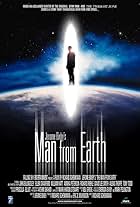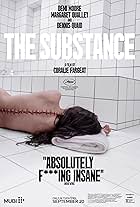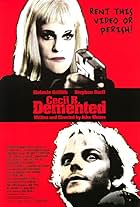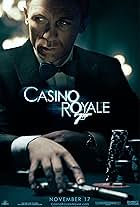
gbill-74877
Joined Mar 2016
Welcome to the new profile
We're still working on updating some profile features. To see the badges, ratings breakdowns, and polls for this profile, please go to the previous version.
Ratings3.1K
gbill-74877's rating
Reviews2.8K
gbill-74877's rating
An apartment building which has hidden cameras and microphones in every room, all centrally monitored, is a terrifying thing, it's just too bad that everything built around this premise is so poorly done. This is an "erotic thriller" from the 90's which is M. I. A. In both categories, making it a complete snooze. As a follow-up to her breakthrough in Basic Instinct from the previous year, Sharon Stone couldn't have picked a worse project or leading man. William Baldwin is awful from beginning to end, and hearing him request Stone's panties in the restaurant in what was supposed to be a steamy moment almost caused my ears to bleed. It's no wonder to me that his career never took off.
Blame can be passed around in all directions too: the script from Joe Eszterhas reeks of dialogue that doesn't make sense (Baldwin's character saying he'd like to fly into a volcano, for example) or is coarser than the situation would call for (like a neighbor telling Stone that moving is "worse than anal intercourse" after just meeting her). There is no cohesion or suspense in the mystery, and subplots and the police investigation disappear without notice. Director Phillip Noyce doesn't generate any heat out of the sex scenes either, and it's not just because the amount of nudity was scaled back, it's because they were shot in such bland ways between two actors with zero chemistry playing roles that hadn't developed any tension. Terrible ending too. Oof, still a dud 32 years later.
Blame can be passed around in all directions too: the script from Joe Eszterhas reeks of dialogue that doesn't make sense (Baldwin's character saying he'd like to fly into a volcano, for example) or is coarser than the situation would call for (like a neighbor telling Stone that moving is "worse than anal intercourse" after just meeting her). There is no cohesion or suspense in the mystery, and subplots and the police investigation disappear without notice. Director Phillip Noyce doesn't generate any heat out of the sex scenes either, and it's not just because the amount of nudity was scaled back, it's because they were shot in such bland ways between two actors with zero chemistry playing roles that hadn't developed any tension. Terrible ending too. Oof, still a dud 32 years later.
"And we decided to celebrate our end like the doomed in the movies do."
I loved the look and feel of this Argentinian noir, with its flashbacks, surreal dream sequences, and segues into the inner thoughts of its main character. Instead of a femme fatale we get a tragic figure (Aída Luz), and instead of everything coming apart because of a con game, we get drama out of misunderstanding and paranoia. These are basically good people, driven to dark places by economic desperation, with the post-war conditions in Europe looming as a distant backdrop. I wasn't completely sure about the ending, as the digging wouldn't have to be too deep and the guy should have known it (being vague here on purpose), but I loved how brutally grim it was. Overall, a very satisfying film.
I loved the look and feel of this Argentinian noir, with its flashbacks, surreal dream sequences, and segues into the inner thoughts of its main character. Instead of a femme fatale we get a tragic figure (Aída Luz), and instead of everything coming apart because of a con game, we get drama out of misunderstanding and paranoia. These are basically good people, driven to dark places by economic desperation, with the post-war conditions in Europe looming as a distant backdrop. I wasn't completely sure about the ending, as the digging wouldn't have to be too deep and the guy should have known it (being vague here on purpose), but I loved how brutally grim it was. Overall, a very satisfying film.
"What more can you expect from a society that itself spends 44% of its tax dollars on killing?"
As novel as it was to see Tony Curtis in a role counter to his usual type, this didn't work for me on any level, and it was a difficult two hours to get through.
My issues:
As novel as it was to see Tony Curtis in a role counter to his usual type, this didn't work for me on any level, and it was a difficult two hours to get through.
My issues:
- Fleischer's ridiculous use of split screens, sometimes showing five shots at once, did not add a thing to the storytelling and were an annoying distraction.
- The focus on the police procedural in the first half and the amateurish psychology in the second half was incredibly tedious. For a movie about a community gripped in fear over a serial killer, this was as dry as toast to me. Henry Fonda as the bland investigator didn't help.
- Meanwhile, I didn't learn anything about the victims, and didn't learn much at all about the strangler either, or at least, the man all the murders were chalked up to, possibly incorrectly.
- The multiple personality disorder diagnosis given to Albert DeSalvo was completely invented, making all of the dated psychological investigation which followed also rubbish. It made me wonder about historical accuracy for the rest of it, Fonda's role in particular, and in any event, I never felt like what I was watching was real. All of that undercut the noble aim expressed at the end of the film, and made it seemed like borderline exploitation.
























